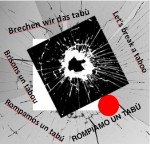“Losing the past means losing the future”
Wang Shu
To maintain its dominion and control, this system needs to deny memory by dissuading us from investigating the roots that generate inequalities, exploitation, oppression, crises and war, turning off every voice that can tell the reasons and destroying every historical truth.
Never like in recent years has there been an attempt to rewrite history in such a systemic way with the aim of homogenizing thinking with dominant interests and denying the profound socio-economic reasons underlying social conflicts.
Breaking down every form of solidarity, empathy, sharing of the reasons for the struggles and their possible development is even more necessary today.
The more this system is in crisis, the worse the living and working conditions of the lower classes become. One side needs to repress the other by creating consensus, demonizing any possibility or idea of social transformation.
The attack on memory is an attack on the class struggle, which continues today with respect to the experiences that developed in the 70s and 80s.
Years that the State describes as "Anni di Piombo" (Name given by the Italian press which means literally “Years of Lead” - ndt). But for workers, the unemployed, students, women and all the oppressed, the "Anni di Piombo" began in the 1960: for workers who experienced very harsh working and exploitation conditions (starvation wages, very long hours, inhuman rhythms), subjected to filing and control systems (Valletta/Fiat); for students forced into an authoritarian education; for those in need of care, they had to pay for healthcare; for those looking for a home and a home was a luxury; for prisoners and mentally ill people imprisoned in prisons and mental asylums similar to concentration camps. Years in which people died (farmworkers, students, factory workers) because of the police, or the fascists in their service, during demonstrations.
Those that came afterwards were, however, years of gold and not of lead for the bourgeoisie: years in which reforms and concessions were obtained through struggles, thanks to the balance of power and the fear of the power of completely losing its dominion (abortion, escalator, workers' statute, divorce, “Basaglia law”, maternity, nurseries and counseling centers for women, fair rent, national health service, etc.), that changed hierarchies, factory control, work rhythms, authoritarianism in schools.
Years in which developed a sense of protagonism, collective critical knowledge and a process of awareness that affected the proletarian class as a whole, also thanks to the experiences of the liberation struggles of the countries of the South of the world, of Che Guevera's guerrilla warfare, of the struggle of the Viet Cong, of the Palestinian fedayeen, of liberation in Algeria and of the guerrillas in the center of the capitalist metropolises (France, Spain, Greece, Germany, USA).
Struggles that spoke of "revolution", projected towards a change in social, economic, cultural relations, freed from exploitation and the logic of profit.
It is against the attempt to rewrite or cancel the memory of that cycle of struggles in the various forms and ways in which they were expressed and for which 16 political prisoners, since the 1980s, are still in prison, which we want, with the appeal that follows, draw attention and break a taboo.
Not only because that story belongs to the exploited class and those who committed it and must be given back their dignity and truth, but also and above all it concerns today and the future and the possibility, increasingly denied, of expressing critical thought, of believe in the possibility of building an alternative to this socio-economic model which only produces inequality, exploitation and war.

